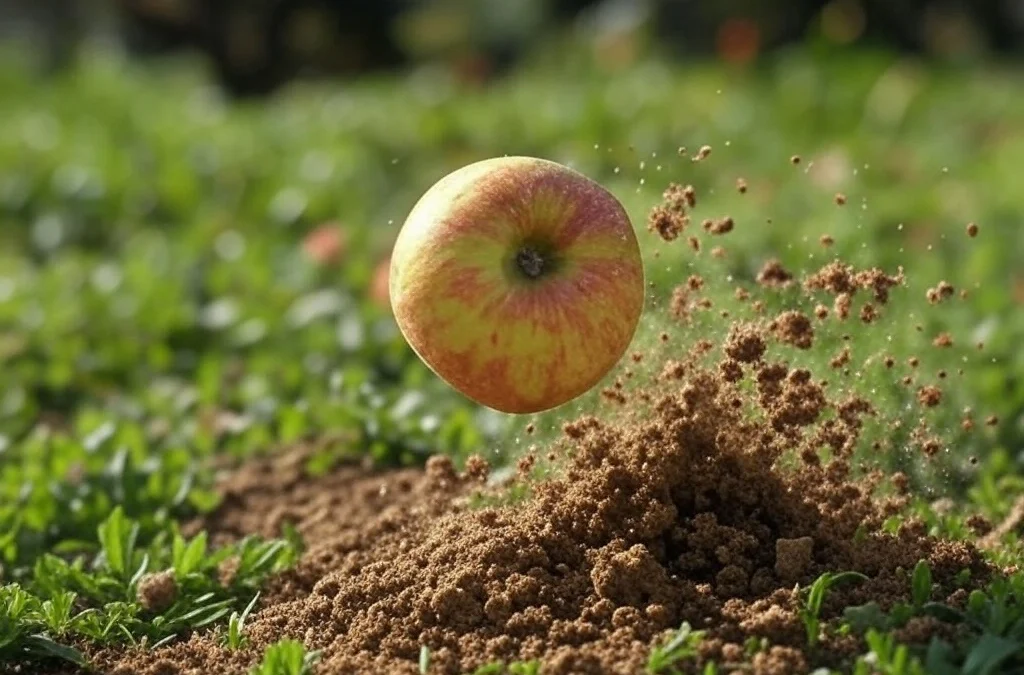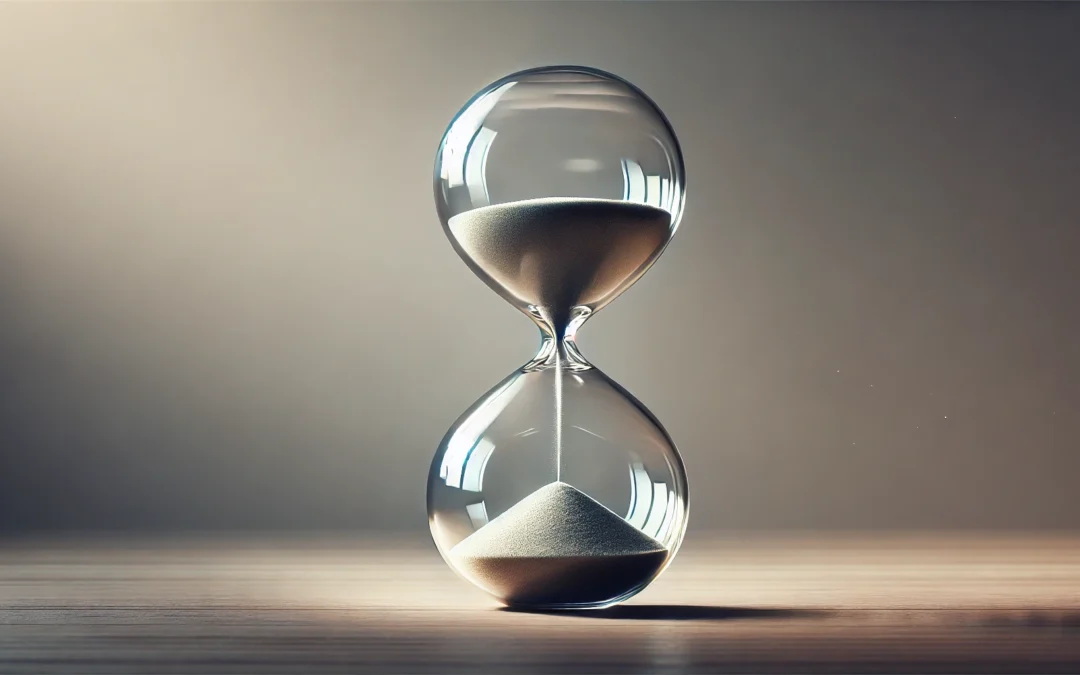Life moves quickly, and we’re often used to getting things right away. But learning how to wait and manage our impulses is a rare strength that can really set us apart. Whether it’s staying calm in a traffic jam or waiting for a promotion at work, patience helps us navigate life’s challenges with grace.
In the examples below, we’ll explore 20 real-life situations where patience makes all the difference. These examples show how practicing patience can lead to better results and personal growth.
The Essence of Patience
Patience is the ability to remain calm and composed in the face of delays, difficulties, or provocation without reacting negatively. It involves enduring challenging situations or waiting for outcomes without succumbing to frustration or agitation. Patience is a vital emotional and mental skill that fosters resilience and self-control, allowing individuals to manage stress and maintain harmony in their personal and professional lives. This virtue is often linked with empathy, tolerance, and understanding, as it requires a considerate approach towards oneself and others. Practicing patience can lead to better decision-making, improved relationships, and overall well-being. In essence, patience is not merely waiting, but how one behaves while waiting.
Everyday Examples of Patience
Patience is something we practice every day, often without realizing it. From small daily tasks to long-term goals, these examples show how waiting and enduring can lead to positive outcomes.
Gardening
Gardening is one of the clearest examples of patience. You plant a seed, nurture it with water and sunlight, and wait weeks or months for it to grow. There’s no way to rush this process – nature operates on its own schedule. Gardening teaches us that consistent care and attention lead to long-term rewards, reminding us that patience is essential in many areas of life where we can’t control the pace of growth.
Cooking a Slow-Cooked Meal
Making a meal like a slow-cooked stew or roast takes hours, but the reward is undeniable. As the ingredients simmer, flavors meld together in ways that simply can’t be rushed. If you try to hurry the process, you miss out on the rich, layered taste that slow cooking creates. Patience in the kitchen not only results in a better meal, but it also teaches you to appreciate the process. This can translate into work and life, where waiting often leads to better outcomes than rushing.
Waiting in Traffic
Sitting in traffic is an everyday test of patience. You can’t control the cars around you, but you can control how you react. Instead of getting frustrated, use the time productively – listen to a podcast, practice mindfulness, or reflect on your day. Developing patience in traffic translates to staying calm in other areas where we have little control.
Learning a New Skill
Whether you’re learning to play the guitar, mastering a new language, or picking up a new hobby, patience is key. Progress is slow and often marked by setbacks. Some days you’ll feel like you’re making strides, and others you may feel stuck. Patience helps you accept the learning curve, pushing you to continue despite difficulties. Celebrating small achievements along the way keeps you motivated. This lesson in patience is crucial for both personal and professional growth.
Raising Children
Parenting is perhaps one of the most challenging exercises in patience. Children develop and learn at their own pace, and as a parent, you need to guide them with love, understanding, and immense patience. They’ll make mistakes, test boundaries, and take time to grasp lessons. Instead of getting frustrated, patient parenting fosters a supportive environment where children can grow and thrive in their own time, teaching both parent and child the value of patience.
Listening to Others
True patience is often revealed in conversations. When someone is speaking, especially during a disagreement, it’s easy to interrupt or jump to conclusions. But patience allows you to listen fully, to give space for the other person’s thoughts and feelings. This shows empathy and respect, deepening relationships and avoiding unnecessary conflicts. Practicing this kind of patience can lead to clearer communication and stronger connections in both personal and professional life.
Dealing with Technology
We’ve all been there – waiting for a computer to boot up or a phone to load. Instead of succumbing to frustration, practicing patience with technology helps maintain your calm. Remind yourself that things break or slow down, and losing your temper won’t fix them any faster. Patience in these moments keeps stress levels down and teaches you to approach problems with a clear mind, which is invaluable when facing larger, more complicated challenges.
Waiting for a Promotion
In the workplace, promotions don’t always come as quickly as we hope. Even if you’re performing well, other factors may delay your advancement. Patience is essential here. By continuing to work hard and demonstrate your value, you position yourself for future opportunities. Patience teaches you to trust the process and to focus on your growth rather than immediate rewards.
Baking Bread
The process of baking bread, particularly waiting for the dough to rise, is a simple yet profound lesson in patience. The dough needs time to expand, and if you rush it, the texture won’t be right. It’s a reminder that certain things can’t be hurried. Bread making requires trust in the process, and this patience transfers to other areas of life, where rushing can often lead to poor outcomes.
Physical Recovery
Recovering from an injury or surgery is a process that requires time and patience. Pushing too hard, too soon can cause setbacks, while taking the time to heal properly ensures a full recovery. Patience during recovery allows you to follow through with treatment, rest, and care, which ultimately leads to better health in the long term. It’s a powerful reminder that taking your time often leads to better results than trying to rush forward.
Meditation Practice
Meditation is the ultimate exercise in patience. It’s about sitting quietly, focusing on your breath, and allowing thoughts to come and go without judgment. At first, it can be frustrating as the mind wanders, but over time, you develop patience with both the process and yourself. This patience not only helps in meditation but spills over into daily life, making you more resilient to stress and more mindful in your actions.
Building Relationships
Relationships take time to develop. Whether it’s a friendship, a romantic partnership, or a business connection, patience is key. Misunderstandings and conflicts are natural, but with patience, you can work through them and grow closer. This teaches you that strong, lasting relationships aren’t built overnight, but through patience, empathy, and shared experiences over time.
Writing a Book
Completing a book or any large writing project is a long process that demands patience. From writing the first draft to revising and editing, the journey takes time. You can’t rush creativity or the process of refining your work. Patience in writing teaches you to accept slow progress and trust that persistence will lead to polished results.
Fishing
Fishing is a great example of patience. You cast your line and wait, sometimes for hours, without knowing if you’ll catch anything. It teaches you to appreciate the calm, quiet moments, and the beauty of simply being present in nature. Fishing reminds us that not all rewards come quickly, and sometimes the waiting is the best part.
Saving Money
Financial goals, such as building savings, require time and discipline. Patience helps you stick to a budget and resist the temptation to spend impulsively. As you watch your savings grow slowly over time, you learn that patience is key to achieving financial security and long-term goals.
Waiting for a Package
Ordering something online and anticipating its arrival can be both exciting and frustrating. While tracking the package, you realize that the waiting is part of the process. This simple example highlights that in many areas of life, patience helps manage expectations and allows you to enjoy the journey, not just the destination.
Training a Pet
Teaching a dog or any pet new tricks or behavior takes time, consistency, and patience. Animals don’t learn immediately; they need repetition and reinforcement. Patience here leads to a better relationship with your pet and reminds you that progress, in any form, comes with time and effort.
Growing a Business
Building a successful business is a long-term endeavor. It requires patience as you develop plans, implement strategies, and wait for results. There are no overnight successes. Entrepreneurs learn that patience is key as they steadily work towards their goals, adapt to challenges, and wait for their efforts to pay off.
Dealing with Customer Service
Resolving issues with customer service often requires waiting and staying calm, whether it’s over the phone or online. Patience here can lead to better results, as it helps you maintain a polite and respectful tone, which often gets you better assistance and outcomes.
Weathering a Storm
During a storm, there’s nothing to do but wait it out. You stay indoors, stay safe, and let the storm pass. This teaches a simple but profound lesson in patience – you can’t control everything, but you can control how you respond to the situation. Staying calm and patient is often the best course of action.
Other Real-Life Examples of Patience:
- Waiting for a baby’s first steps
- Enduring a long flight delay at the airport
- Waiting for your garden to bloom in spring
- Training for a marathon over several months
- Completing a college degree over several years
- Waiting in a long line at the grocery store
- Assembling a complicated piece of furniture
- Learning to drive as a teenager
- Waiting for your hair to grow back after a bad haircut
- Practicing yoga regularly to improve flexibility
- Adjusting to a new job or role
- Building a strong online following for a business
- Repairing a long-term relationship after a conflict
- Caring for a sick loved one during recovery
- Completing a challenging puzzle or game
- Waiting for a natural disaster recovery process
- Adapting to a new culture when moving to a new country
- Waiting for a homemade pizza dough to rise
Is it Possible To Develop and Master Patience?
Patience is absolutely a skill you can develop and master with time and practice. While some people might seem naturally more patient, it’s not something anyone is born with or without. Patience is more like a mental muscle that can grow stronger the more you use it. And the good news is, anyone can improve their patience with a bit of effort and the right mindset.
Start by being more mindful of how you react in daily life. When frustration creeps in – whether you’re waiting in line or dealing with a slow internet connection – take a moment to breathe. Focus on the present instead of letting irritation build. The simple act of pausing can help you calm down and reset your perspective.
It’s also helpful to manage your expectations. Many times, impatience stems from expecting things to happen faster than they realistically can. Break down big tasks into smaller, more manageable steps and take satisfaction in each little bit of progress. Remember, meaningful goals – whether in your personal life or career – take time, and that’s okay.
Waiting doesn’t always have to feel like wasted time. Try to see those moments as opportunities for reflection or to practice gratitude. If you’re stuck in traffic or waiting for a response from someone, use that time to think about your next move or simply appreciate the break in your day.
Patience also grows when we learn to deal with discomfort. Stepping out of your comfort zone, facing small frustrations, and not immediately reacting helps build resilience. The more you handle challenges with a calm attitude, the stronger your patience becomes.
Finally, it’s important to focus on the long-term rewards rather than instant gratification. Whether you’re saving money, learning a new skill, or working towards a career milestone, patience keeps you committed. It allows you to stay focused on the big picture and enjoy the benefits of steady progress.
With consistent practice, you’ll find yourself becoming more composed in stressful situations. Over time, patience can lead to much better decision-making, stronger relationships, and a greater sense of peace in your life.
The Importance of Patience in Personal Development
Patience is a vital trait in personal development, often overlooked in today’s fast-paced world. It plays a crucial role in helping individuals grow and improve themselves over time. One of the key reasons patience is essential for personal development is that it allows people to persist through challenges and setbacks. When working on self-improvement goals, such as learning a new skill or developing healthier habits, progress can be slow and sometimes frustrating. Patience helps individuals maintain their motivation and keep pushing forward, even when immediate results are not visible.
Moreover, patience cultivates resilience. By being patient, individuals learn to handle stress and adversity more effectively. They become better equipped to face life’s uncertainties with a calm and composed mindset. This resilience not only aids in achieving long-term goals but also improves overall mental well-being. Patience encourages people to focus on the journey rather than just the destination, fostering a more fulfilling and balanced life.
In addition, practicing patience enhances decision-making skills. When people rush into decisions without taking the time to consider all options, they often make mistakes or overlook important details. Patience allows individuals to pause, reflect, and make more informed choices, leading to better outcomes in both personal and professional areas of life. By understanding the importance of patience in personal development, individuals can unlock their potential and achieve greater success.
Patience in Building Strong Relationships
Patience is a cornerstone of strong and healthy relationships. Whether it’s with family, friends, or romantic partners, patience is essential for understanding and supporting others. One of the primary ways patience benefits relationships is by fostering effective communication. When individuals are patient with one another, they are more likely to listen actively and empathize with each other’s perspectives. This leads to deeper connections and a stronger sense of trust.
Additionally, patience helps in resolving conflicts. Disagreements are a natural part of any relationship, but how they are handled can make a significant difference. Patience allows individuals to approach conflicts with a calm demeanor, reducing the likelihood of saying or doing things they may later regret. It provides the space needed to find mutually agreeable solutions, strengthening the bond between individuals.
Patience also plays a role in accepting and embracing differences. Every person has unique quirks, habits, and viewpoints that may not always align perfectly with others. By practicing patience, individuals can appreciate these differences and learn from them, rather than becoming frustrated or intolerant. This acceptance leads to more harmonious and enduring relationships.
Lastly, patience in relationships encourages growth and support. People are constantly evolving, and being patient with one another during times of change ensures that relationships can adapt and thrive. Whether it’s supporting a partner through a career transition or being there for a friend during a tough time, patience demonstrates a commitment to the relationship’s long-term success. By recognizing the value of patience in building strong relationships, individuals can cultivate deeper, more meaningful connections with those around them.
The Science Behind Patience: How It Affects Our Brain and Well-being
Patience isn’t just an abstract concept – it’s grounded in science. When we practice patience, our brain releases chemicals like dopamine, which contribute to feelings of satisfaction and happiness. This natural reward system helps lower stress and enhances overall well-being.
People who practice patience also tend to experience less depression and anxiety. This is because they develop stronger coping mechanisms, allowing them to handle setbacks with a calm mind. By reducing emotional reactivity, patience promotes thoughtful decision-making and helps avoid impulsive actions that can lead to regret. Over time, these thoughtful choices contribute to a more fulfilling and successful life.
In addition, patience has been linked to better physical health. Studies show that patient individuals are less likely to suffer from high blood pressure and heart disease. The connection between mental and physical health is clear, by managing stress more effectively, patient people avoid the harmful effects of chronic stress on the body.
In short, patience is not only a virtue but also a practical tool for improving both mental and physical health. By embracing patience, you can lead a calmer, more balanced, and healthier life.
Patience and Success: How They Are Connected
Patience and success are closely linked, though it’s often easy to overlook their connection. In a world that pushes for quick wins and fast results, we sometimes forget that real success usually takes time. Patience allows you to keep working steadily toward your goals without becoming discouraged by delays or setbacks. It’s the quiet strength behind long-term achievements.
Success rarely happens overnight. Whether you’re building a career, starting a business, or mastering a new skill, there will be obstacles along the way. Patience gives you the ability to stay focused and keep moving forward, even when progress seems slow. It helps you navigate the difficult periods when things aren’t going as planned. This resilience, fueled by patience, is often what sets successful people apart. They understand that every setback is part of the process, and they don’t give up at the first sign of struggle.
When you’re patient, you’re more likely to make thoughtful decisions. Impatience often leads to rushing and poor choices that can set you back. Patience, on the other hand, encourages careful planning, reflection, and a long-term view. These qualities help you build sustainable success. It’s not just about reaching your goals quickly – it’s about reaching them well.
Another key element of patience is that it allows you to stay committed to your vision. It helps you remain motivated during the times when progress feels invisible. This persistence eventually leads to the breakthrough moments that push you closer to success. Patience doesn’t just make the journey more manageable; it makes success more attainable.
In the end, patience teaches you that real success isn’t about speed – it’s about consistency, perseverance, and learning to trust the process. The ability to wait, work, and stay determined often leads to deeper, more fulfilling achievements. So, yes, patience has a direct and powerful impact on success. The more patient you become, the closer you are to reaching your full potential.
The Most Popular on BitGlint

40 Social Dilemma Examples in the World & Real Life
Social dilemmas are everywhere. They shape the choices we make at work, in our communities, and even on a global...

30 Favor Examples & Definition
Doing a favor means helping someone without expecting anything in return. It’s an act of kindness that can strengthen...

30 Naivety Examples & Definition
Naivety is something most people experience at some point in their lives. It often starts in childhood, but for some,...

20 Chronology Examples & Meaning
Chronology is something we use more than we realize. It shows up in conversations, in how we remember the past, and in...

30 Wishful Thinking Examples & Meaning
Wishful thinking is something we all do at some point. You hope things will turn out fine—even if there’s no real...

20 Examples of Gravity & What Gravity Really Is
Gravity is one of the most important forces in the universe, but many people don’t fully understand what it really is...

20 Examples of Secondary Consumers in the Food Chain
Secondary consumers are animals that eat other animals—usually herbivores that feed on plants. They’re an important...
Get Inspired with BitGlint
The Latest
30 Flow State Examples & Definition
Most people have felt it at some point — that rare moment when everything just clicks. You're working, moving, or thinking, and suddenly it's like the rest of the world fades out. You're focused, clear, and everything you're doing feels smooth and natural. That’s...

30 Cynicism Examples in Everyday Life & Definition
Cynicism is something most people have seen, heard, or even felt - but few stop to really think about what it means. It shows up in jokes, in conversations, and in quiet thoughts we don’t always say out loud. Some people wear it like armor. Others see it as honesty....
50 Examples of Square Things
Square things are part of everyday life, even if we don’t always think about them. From objects we use at home to tools, packaging, and design elements we see out in the world, the square shape is everywhere. It’s simple, balanced, and practical — which is exactly why...
80 Examples of Abstract Things
Some of the most important things in life are things we can't see or touch. Love, time, freedom, and happiness are not physical objects, yet they shape our thoughts, decisions, and emotions every day. These are examples of abstract things—ideas, concepts, and emotions...

